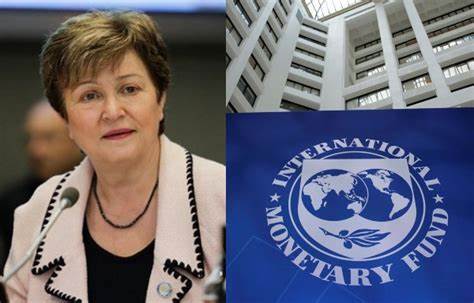By Zayamu Hassan
The Managing Director of the International Monetary Fund (IMF), Kristalina Georgieva, has called on African leaders to use the recently approved $650 billion Special Drawing Rights (SDR) for top priorities, especially, resilience on health.
She made the call at the opening session of the Compact with Africa Conference.
It would be recalled that few days ago, the IMF approved $650 billion SDR allocation in order to boost the economy of countries, especially, those in dire need to enable them recover from the devastation of the COV ID-19 pandemic.
According to her: “At the IMF, from the outset of this crisis, we’ve swiftly and decisively stepped up our support with the resources we had. But we also recognized that this would be not enough for a crisis of this magnitude.
“I want to thank the G20, and thank the leaders here today, who have actively supported the $650 billion Special Drawing Rights allocation – a shot in the arm for the world economy, but especially for countries in dire need.”
She, therefore, charged benefiting countries to use the funds differently.
“After the 2009 crisis, we issued $250 billion in SDRs. 90 percent of those SDRs were used simply to boost reserves. This is necessary today, too. But we have to do more.
“We have to use this unique opportunity for strategic transformation of countries – transformation that is going to be driven by this crisis.
“And therefore, we call on you – on the leaders – to use these resources strategically, for top priorities. And, of course, self-resilience on health is a top priority.
“Second, many spoke about those countries that received SDRs but are not in dire need. They can on‑lend.
“We are working on this relentlessly, so please do continue to press for this reallocation of SDRs. The target that the G7 set – $100 billion – is achievable,” she said.
Georgieva, however, explained that: “At the IMF, we’re working on two very big objectives: one, to boost the Poverty Reduction and Growth Trust. Two, to create a new Resilience and Sustainability Trust, so we can effectively use SDRs to also help you address this other crisis: the climate crisis that is already hitting the Continent.
“Let me finish by saying we should not take for granted that CO2 emissions in Africa are going to stay low.
“As Africa grows, as its population grows, unless there is determined, strong investment in a less carbon‑intensive development path, we will see Africa struggling to stay low in carbon emissions – in a crisis that affects Africa the most.
While reiterating that IMF will continue to support countries in dire need, she said: “That continues to be a priority, and we will continue to support you in your very, very important work.”




